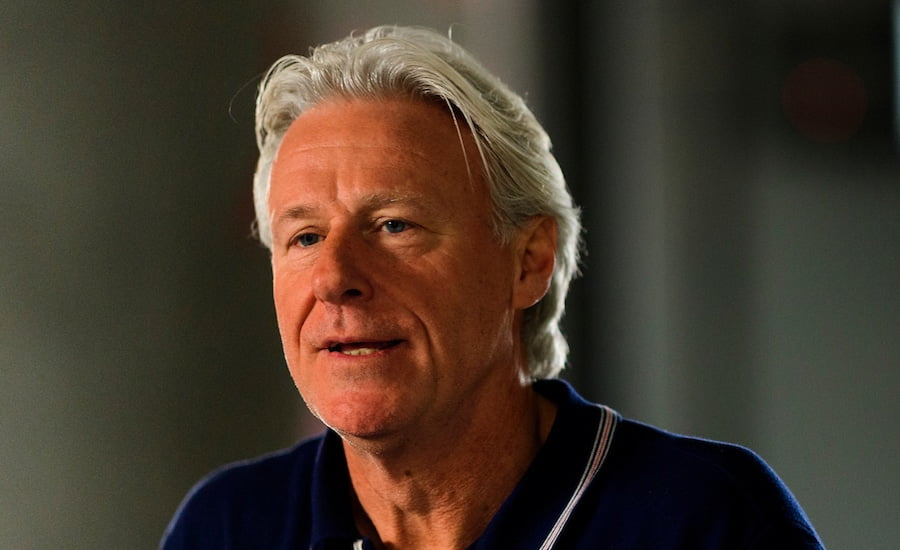
“This is a key reason for his consistent success” ATP coach lifts lid on Andy Murray psychology
Self-belief can be the greatest weapon you will ever have and Andy Murray is an example of a player who has always believed in himself, says Dave Sammel, author of the best selling book Locker Room Power
Playing every point as hard as you can from the beginning of a match to the end will keep you focused on the task in hand.
Not one person achieves every goal they set, but one thing is guaranteed: an individual who has belief in their own abilities will always succeed to a higher level than someone who does not. I liked what the American basketball player Isaiah Thomas said: “I’ve always believed no matter how many shots I miss, I’m going to make the next one.”
A basic belief that you will succeed is essential. This self-belief grows as you progress through different levels and achieve results. No person can believe in himself or herself without achieving any victories. In order to have faith in yourself it is imperative that achievable goals are set: consistently competing out of one’s depth is a belief killer.
True self-belief develops over time when it becomes obvious why you are winning. It is born of a great intent to defeat opponents with your weapons and the knowledge that you can consistently rely on them. When this occurs, your opponents begin to fear the commitment behind the weapons you use and think about their own weaknesses.
When champions say they cannot believe they have won Wimbledon or Olympic gold, what they are actually saying is that they cannot believe how soon it has happened or that what they have always believed has finally happened. The fundamental belief that they could attain this goal was settled many years beforehand.
Andy Murray is an example of a player who has always believed in himself. He has never had a problem visualising himself competing at the highest level, so it is really no surprise to him when he gets there. Andy Murray has always believed in himself as a person and a tennis player: this has been a key reason for his consistent success over the years, through the junior ranks and now on the Tour.
The success Andy Murray has achieved confirms his self-belief, so he becomes even more successful. Self-belief and success enhance each other. If you believe in yourself you are more likely to succeed; if you succeed you are more able to justify your self-belief and so on.
However, even champions have to go through a process of refining their skills and gaining the maturity to express their self-belief in a way that is powerful enough to win at the highest level.
Here is an example of Tim Henman realising his coming of age as a player: “When I beat the French Open champion, Yevgeny Kafelnikov, at Wimbledon [1996] in my first match on Centre Court, on the court that I’d always dreamed of playing on, saving two match points and going on to win in five sets, it changed my life forever. It is safe to say that when I walked back into the locker room after that match the other players looked at me differently and the respect was there. It is the day my Locker Room Power was established amongst the elite.”
If you are aware that self-belief is just a decision to play point by point as hard as you can from the beginning to the end of the contest with enthusiasm (positive energy) whether you win or lose, then you will have an advantage because you will remain focused on the task at hand throughout the course of a match.
“My greatest point is my persistence,” Bjorn Borg once said. “I never give up in a match. However down I am, I fight until the last ball. My list of matches shows that I have turned a great many so-called irretrievable defeats into victories.”

The difference between the high achievers and the also-rans is not their work ethic or talents, but their self-belief. Most of us have two jobs in our quest for success: the job of learning how to believe and the job of getting better at what we do. The champion has only one job: the job of getting better. He has learned to believe in himself regardless of whether he wins or loses, while most of us fall into the trap of trying to be good enough before we can believe in ourselves. The secret is that if you believe in yourself and lose, your only job is to keep getting better; when you are good enough, lack of self-belief is not going to prevent you from winning.
While you cannot control whether or not you win, you can control giving yourself the best opportunity to achieve a successful result. The key is to play from the beginning to the end of the match with 100 per cent belief in winning. The trick is to play with belief that you can win even when you can’t.
If you lose, you can then analyse what needs to be done better, so the next time you play this person you will be tougher and when you are good enough, you will win. Lewis Hamilton summed it up perfectly after losing the lead in the 2010 world drivers’ championship when he crashed out in an ill-fated attempt to pass Felipe Massa at Monza. “In bad situations you soak up all the lessons that need learning,” Hamilton said afterwards. “You absorb that information, put the bad experiences to one side, use the benefits and move on.”
By focusing on the task at hand instead of the result, you eliminate feelings of fear. It is the process that matters, not the results. If the process is right, then the results will follow.
To be a strong person, look at the cards you have been dealt and add up all the positive cards you hold. Generally, you hold a greater number of strong cards than you think and often more than your opponent.
A classic error is to assume your opponent is better prepared, mentally tougher or indeed better than you, with little evidence other than your perception and imagination. If you believe in yourself, you will be confident about playing your own game (using your cards) and seeing how the match unfolds before you make judgment.
You may well be surprised how powerful you are and how weak the previously unchallenged opponent actually is. No matter what your background, you must be determined to put a positive spin on it. Whatever your circumstances, you cannot afford to allow yourself to be a victim and feel sorry for yourself.
Read more great articles about Andy Murray
 David Sammel is an ATP Tour coach and head of the Bath Academy. He is also the author of the best-selling book, “Locker Room Power”, which is available worldwide in paperback and digitally on Amazon
David Sammel is an ATP Tour coach and head of the Bath Academy. He is also the author of the best-selling book, “Locker Room Power”, which is available worldwide in paperback and digitally on Amazon
Look ahead to the rest of the tennis year with our guides to every tournament on the ATP Tour and WTA Tour. Can’t visit the tournaments you love? Read our guide on how to watch all the ATP Tour matches on TV. For more news, explore Tennishead magazine here or subscribe to our free email newsletter here.


